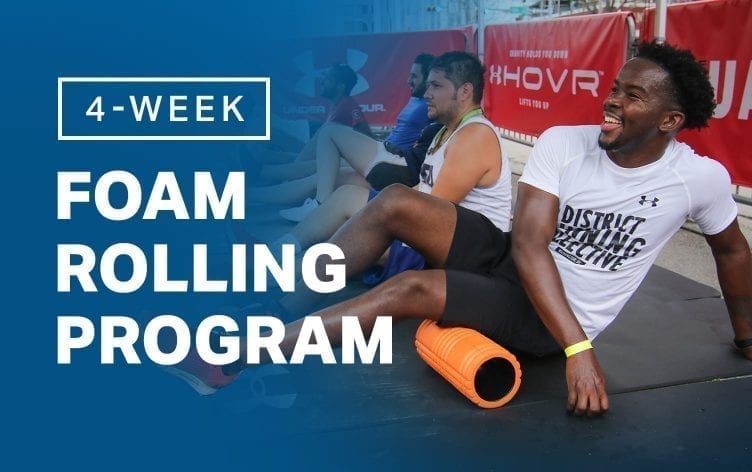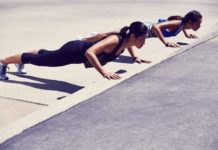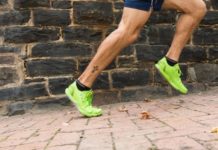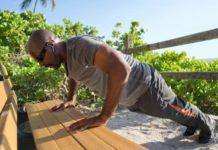
4-Week Foam Rolling Program
Regular foam rolling (self-myofascial release) is beneficial for elite athletes, everyday exercisers and everybody in between. By targeting tissue adhesions or “knots,” the foam roller takes advantage of neuromuscular pathways to release the tissue, allowing for improved range of motion, decreased muscle soreness after activity, better tissue recovery and overall muscle relaxation.
Many of us are great at smashing ourselves with a challenging workout, but how many take the time to focus on proper mobility and recovery before and after a training session? This 4-Week Foam Rolling Program guides and motivates you through some basic foam rolling techniques and hopefully creates some healthy pre- and post-workout habits.
FOAM ROLLING PRO TIPS
For all of these exercises remember the following:
- Move slowly, stopping and holding on tender areas.
- Explore the entire area of tissue for knots (moving horizontally and vertically).
- Breathe regularly as you roll over the tissue.
- More pressure into the ground = less load and pain in the tissue being rolled and vice versa.
- Some discomfort will be felt, but pain should not be intolerable.
FOAM ROLLING EXERCISES
UPPER BACK
The move: With arms across your chest, position the foam roller horizontally across the upper back. Raise your hips off the floor slightly and roll up and down the upper back area. Slightly rock side to side to find the tender points.
LATS (LATISSIMUS DORSI)
The move: With the foam roller positioned horizontally, lay on your side with the arm closest to the ground stretched overhead and thumb pointing up toward the sky. Begin with the roller in the armpit area, and slowly roll down the ribcage and back, stopping and holding at the tender spots.
QUADS/HIP FLEXORS
The move: Begin face down, with the foam roller at the hip flexors. Spend some time with moderate pressure here, tipping the hips side to side to also target the outside of the hip (tensor fascia latae) and various parts of the hip flexors. Pull yourself forward on the roller, moving across the tops of the quadriceps to the top of the knee. Slightly tilt the leg side to side as you move.
PIRIFORMIS/GLUTES
The move: Sit on top of the foam roller and cross the right ankle over the left knee. Rotate toward the side of the bent knee (right) and work the foam roller across the posterior hip, slightly rocking side to side as you move.
HAMSTRINGS
The move: Begin by sitting on the foam roller with it positioned horizontally. The roller should sit at the top of your hamstrings, at the point where your glutes connect to your upper legs. Supporting as much weight as needed on your hands behind you, slowly pull yourself backward over the roller, ending at the underside of the knee. To intensify this, cross one leg over the other. Rock the leg side to side as you roll.
CALVES (GASTROCNEMIUS/SOLEUS)
The move: Position the foam roller directly beneath the middle of one lower leg. Place the other leg on top if added pressure is desired. Roll up to the base of the knee and down to the ankle, stopping on sensitive spots. Slightly rock side to side to find the tender points.

































